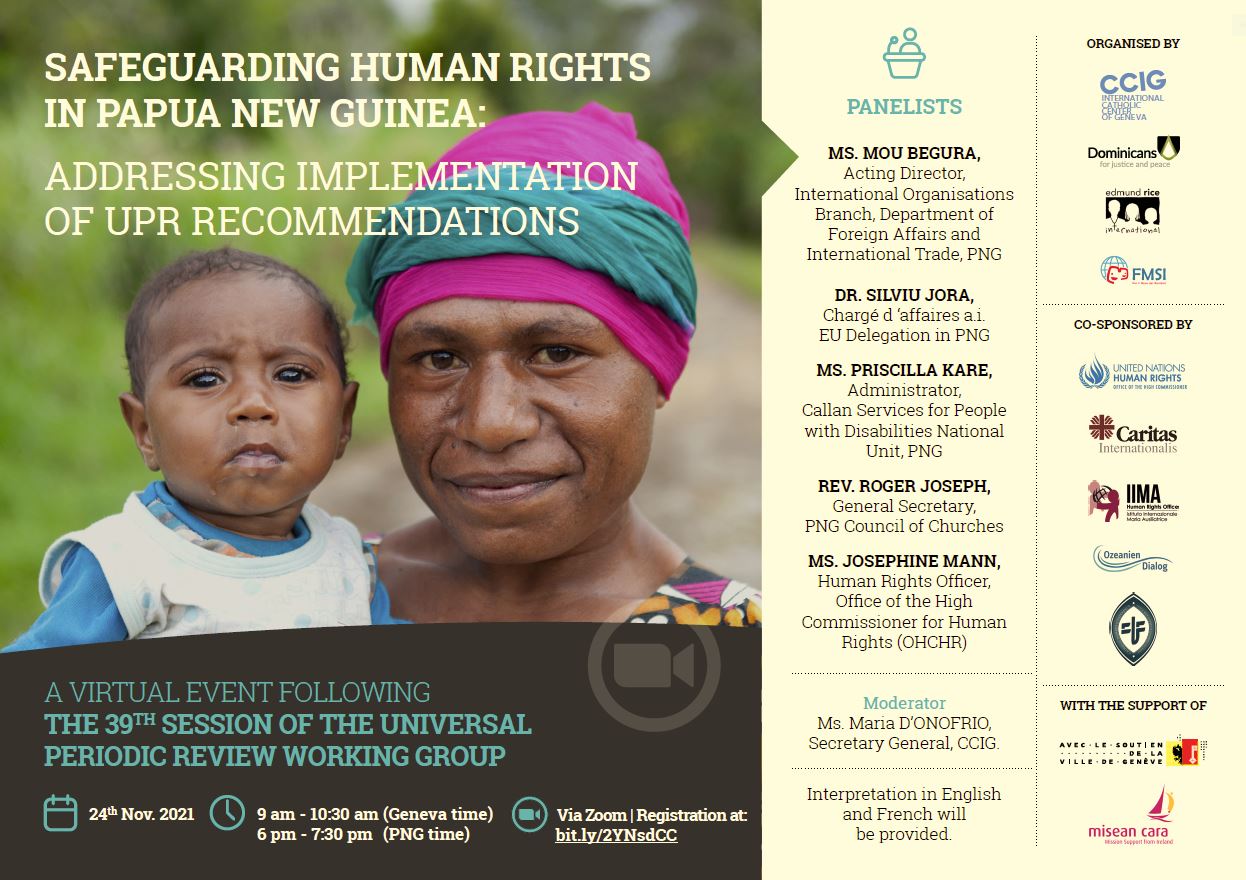
FMSI Webinar on human rights in Papua New Guinea
The Marist Foundation for International Solidarity (FMSI) together with the International Catholic Centre of Geneva (CCIG), Edmund Rice International (ERI) and Dominicans for Justice and Peace are holding a webinar on 24 November – with the contribution of Misean Cara – on the human rights situation in Papua New Guinea.
The webinar will be held online from 9:00 to 10:30 a.m. (Italian time) and from 18:00 to 19:30 p.m. (Italian time). (Italian time) and from 18:00 to 19:30 p.m. (Papua New Guinea time), in English and French. To participate you need to register at this link.
The webinar is part of a project initiated by FMSI and the Solidarity Secretariat, which is organized by 4 international organizations (FMSI among them) and supported by 15 organizations in Papua New Guinea. The project seeks to make available to actors in civil society a methodology for reporting, monitoring and reviewing urgent issues affecting human rights in the country through the Universal Periodic Review (UPR) process. This will enable local NGOs to be more effective in their advocacy activities, strengthen their collaboration with the PNG government, and ultimately improve the situation of those at risk of human rights violations. The project will achieve its goal and objectives through the organisation of national and international activities. (More information at FMSI and Secretariat of Solidarity: a new initiative in Papua New Guinea – Champagnat)
During the meeting, representatives of civil society and national and international institutions will discuss how to promote human rights in Papua New Guinea in light of the recommendations made to the country by the recent Universal Periodic Review, a process that provides for a periodic review by the UN of the human rights situation in all 193 member states.
Papua New Guinea
It is the second largest state in Oceania after Australia and is characterised by great biological and cultural diversity (a large number of language groups and rainforest in three quarters of the territory). It is interesting to highlight the situation of this country because, despite being a resource-rich country, almost 40% of the population lives in poverty. The extraction of mineral and natural resources by large multinational export companies has caused destruction of the country’s environmental and social ecosystem, resulting in poverty, violence and inequality.
A quarter of primary and secondary school-aged children do not attend school, and of this percentage the majority are girls. Logging and mining industries often operate illegally and/or with impunity; their activities have serious impacts on the human rights of local communities, such as the right to food, health and a safe and healthy environment. Local peoples are often denied the opportunity to give their free, prior and informed consent to mining activities. Increasing pressures on resources, coupled with climate change, are intensifying the country’s exposure to extreme events such as natural hazards and depletion of livelihood resources.
